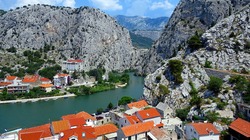
In almost all parts of Europe, renewable energies are now taken for granted as part of the national electricity mix and contribute to reducing CO2 emissions. In the Balkan States, though, renewable energy projects still face numerous institutional, political and regulatory challenges.
Only a month ago, Croatian Environment and Energy Minister Tomislav Coric announced at WindEurope 2019 that his country plans to increase its wind energy capacity by a factor of three and solar energy capacity by a factor of 20 over the next 10 years. Although Croatia - like almost all Balkan countries - has a high share of hydropower (almost 25 percent), the ...




 In almost all parts of Europe, renewable energies are now taken for granted as part of the national electricity mix and contribute to reducing CO2 emissions. In the Balkan States, though, renewable energy projects still face numerous institutional, political and regulatory challenges.
In almost all parts of Europe, renewable energies are now taken for granted as part of the national electricity mix and contribute to reducing CO2 emissions. In the Balkan States, though, renewable energy projects still face numerous institutional, political and regulatory challenges.
 After nearly two decades of strong annual growth, renewables around the world added as much net capacity in 2018 as they did in 2017, an unexpected flattening of growth trends that raises concerns about meeting long-term ...
After nearly two decades of strong annual growth, renewables around the world added as much net capacity in 2018 as they did in 2017, an unexpected flattening of growth trends that raises concerns about meeting long-term ... RenewableUK publishes new report highlights the potential for the growth of aviation services, from helicopters to drones
RenewableUK publishes new report highlights the potential for the growth of aviation services, from helicopters to drones  Fred. Olsen Windcarrier was awarded a contract by MHI Vestas Offshore Wind for the transport and installation of 100 V164-9.5MW wind turbines for the Moray East project off the East coast of Scotland.
Fred. Olsen Windcarrier was awarded a contract by MHI Vestas Offshore Wind for the transport and installation of 100 V164-9.5MW wind turbines for the Moray East project off the East coast of Scotland.  The Global Wind Organisation is an international collaboration for creating safer and more productive workforces
The Global Wind Organisation is an international collaboration for creating safer and more productive workforces 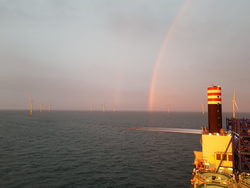 MHI Vestas installs the turbines for Norther offshore wind farm in Belgium in record time
MHI Vestas installs the turbines for Norther offshore wind farm in Belgium in record time 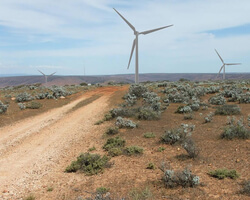 Project owner Nexif Energy has proactively negotiated with turbine manufacturer Senvion to ensure continued progress on the Lincoln Gap Wind Farm while Senvion addresses its financial difficulties and requirements
Project owner Nexif Energy has proactively negotiated with turbine manufacturer Senvion to ensure continued progress on the Lincoln Gap Wind Farm while Senvion addresses its financial difficulties and requirements  Global automotive and industrial supplier Schaeffler announced slightly increased quarterly revenue
Global automotive and industrial supplier Schaeffler announced slightly increased quarterly revenue  Siemens and TÜV SÜD are cooperating with a new approach
Siemens and TÜV SÜD are cooperating with a new approach 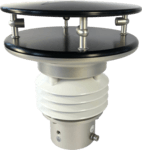 The user-friendly all-in-one solution
The user-friendly all-in-one solution 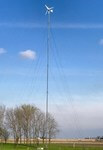 The customer has even built its own tower
The customer has even built its own tower 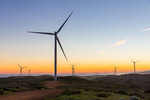 The manufacturer received an order for the supply of wind tubrines for the final construction phase of the Syvash project
The manufacturer received an order for the supply of wind tubrines for the final construction phase of the Syvash project 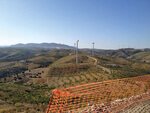 ABO Wind has sold three wind farms (Chinchilla, Barrax and Soliedra) with a total capacity of 88.5 megawatts to an international investor.
ABO Wind has sold three wind farms (Chinchilla, Barrax and Soliedra) with a total capacity of 88.5 megawatts to an international investor.  "Our quarterly results were better than our expectations"
"Our quarterly results were better than our expectations"  Project at Fraunhofer IFAM develops functional coating to increase the electricity yield of wind turbines
Project at Fraunhofer IFAM develops functional coating to increase the electricity yield of wind turbines